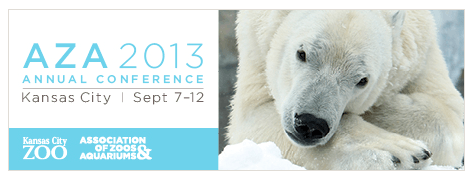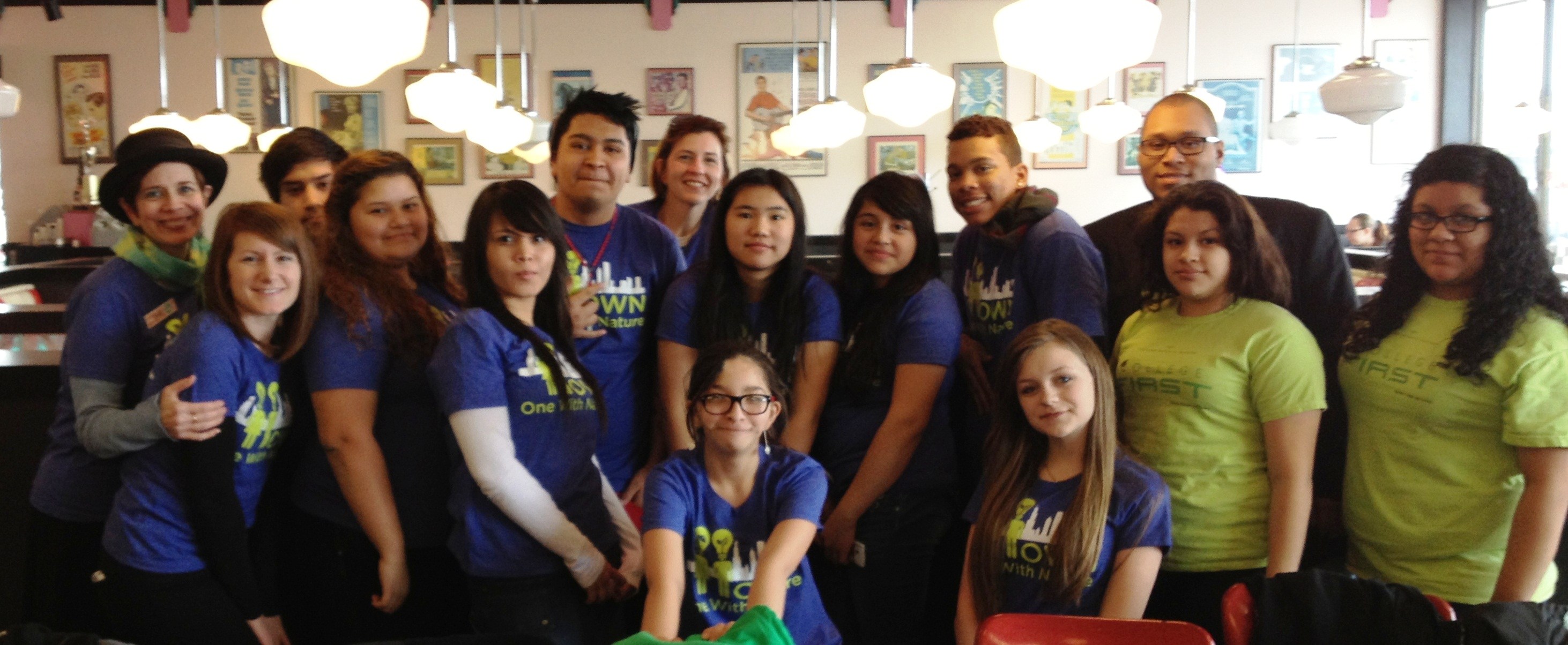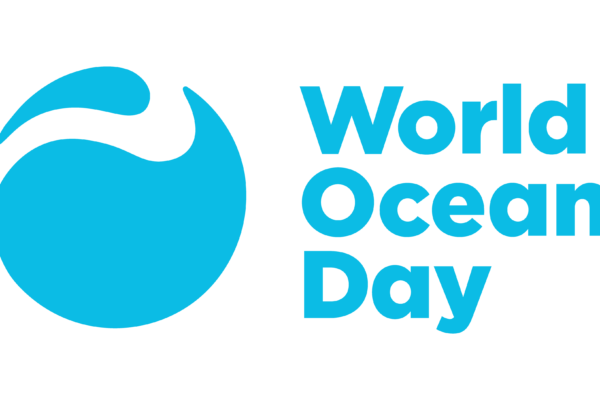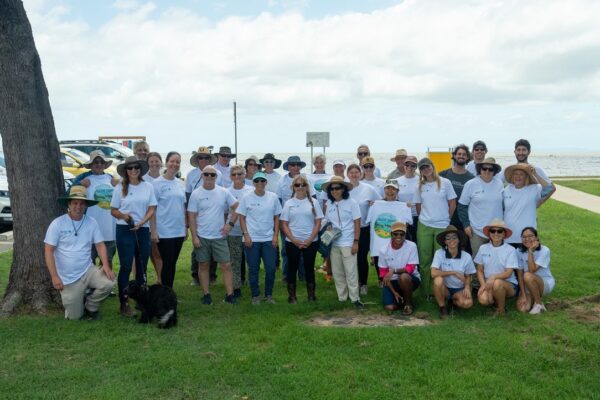The Ocean Project is pleased to present this latest update on our collaborative communications initiative for our zoo, aquarium and museum (ZAM) partners, and others in the wider ocean conservation community.
In this issue we highlight the attention the initiative's research will be receiving at the annual AZA conference, progress with the green power pilot project, successful efforts surrounding this year's World Oceans Day, and an op-ed by Deb Kerr of YouthMuse.
As always, we welcome your feedback!
In this update:
- See you in Kansas City
- Obtaining & promoting green energy
- Looking back at World Oceans Day
- Op-ed: New model for teen engagement
AZA Sessions to shine a spot light on effective communications

Monday, September 9 4:00-5:00 PM in Room 2503B
Making the "Ask" for Conservation Action - This open brainstorming session with representatives from zoos, aquariums, The Ocean Project and NOAA will focus on four ways in which institutions have asked, are asking or are planning to ask visitors to do something for conservation, based on how the research tells us that visitors want to help. Please come with examples and ideas to share, and, in return, we'll supply the refreshments!
Tuesday, September 10 12:00-2:00 PM in the Exhibit Hall
More Power to You: When Teens Make Decisions - Want to achieve your mission and meet your goals for conservation action? The research tells us that a good place to begin is with a focus on teenagers. With tools in their hands and your support at their backs, they will develop messages, build programs and get guests to commit to taking conservation action. And then they’ll post it online to multiply the effort. Come to this roundtable to learn from existing examples and share new ideas.
Tuesday, September 10 12:00-2:00 PM in the Exhibit Hall
World Oceans Day, an Ocean of Opportunities for Action – Special events at zoos and aquariums provide amazing opportunities for fun, learning, and action. Join World Oceans Day coordinator Alyssa Isakower and other zoo and aquarium staff at the World Oceans Day roundtable to share experiences and lessons learned from past events, and brainstorm for next year. Come to chat, express your institutions’ needs and preferences, share tips and tricks, and get excited for World Oceans Day 2014.
Please be sure also to check the poster session, which will feature information on some of the above topics! And be sure to see the full schedule for many other excellent opportunities.
New pilot program helps partners obtain and promote green energy
Building upon our successful session at last year's annual meeting, The Ocean Project has been collaborating with the Green Power Partnership of the US Environmental Protection Agency (EPA) in an initiative that aims to help accelerate our nation's shift to a clean-energy economy. Structured as a two-part pilot project, the initiative is focused on helping 12 zoos and aquariums in efforts to attain and promote renewable energy, creating an example others could follow.
Phase one is well underway, with the pilot sites currently assessing which green power options make the most sense for them. With assistance from the initiative, they have been looking at three primary possibilities: on-site solar, utility programs, and renewable energy certificates (RECs). For on-site solar, many have explored the option of working with Melink, the preferred partner of AZA and the same company responsible for the solar array at the Cincinnati Zoo (see photo). With utility programs, an institution in essence asks that its utility purchase a percentage of its total power usage from renewable sources, something that has been proven to work well for sites such as the Indy Zoo, which is 100% green-powered. Additionally, relatively little-known RECs have proven to be one of the most cost effective options, as they essentially allow a site to purchase the "green" value separate from the power itself. (Click here for more information on RECs) Thanks to an emerging relationship with Greenlight Energy Group, the initiative will be able to offer partners excellent pricing.
Phase two will build upon the above, helping the pilot site partners as they encourage their visitors to follow in their footsteps. "We know from the research that visitors want zoos and aquariums to suggest personal action steps, and signing up for a utility program or purchasing a REC is both meaningful and measurable as we can talk about that not only in terms of the number of people reached but the amount of carbon kept out of the atmosphere," explained Douglas Meyer, who is heading up the initiative for The Ocean Project. "And with RECs, we see an additional benefit as Greenlight Energy, for example, will be offering a 10% referral bonus back to the zoos and aquariums on any certificate purchased by a visitor, resources that can be used to support the institution's conservation and sustainability efforts." The Ocean Project also hopes to offer small grants that will help institutions develop and test different approaches.
Why is The Ocean Project focusing on this initiative?
Because cleaner energy means a cleaner, healthier, and more productive ocean. Furthermore, our national market and communications research clearly shows that Americans want to be seen as 'green' and are looking to ZAMs not only for information about the environmental issues we face, but also how they can become more personally involved in helping with the solutions. We're excited to be working with these pilot sites, and ready to fully leverage our growing partner network of nearly 2,000 ZAMs and other education and conservation organizations in all 50 States and 80 other countries that we've built over the last 12 years. If you'd like to know more, please don't hesitate to reach out to Douglas at dmeyer@TheOceanProject.org.
Action and Celebration for World Oceans Day 2013
ZAMs, individuals, businesses, local governments, and more came together this June 8th to celebrate World Oceans Day with over 600 events around the globe. The variety of events and people celebrating was inspiring; the community really honored the theme of Together we have the power to protect the ocean. Check out the highlight blog to see just a few of these great events.
Keeping with that theme, we were excited to see that many event organizers went beyond celebration and also incorporated conservation action into their event. Our ZAM partners – who held almost a third of the events - were especially bold this year, and many experimented with asking their guests to take conservation action. In our recent blog series Taking the Dive, we talked with staff at institutions such as Seattle Aquarium, California Academy of Sciences, and others about how they approach talking with guests about doing something for the ocean. We look forward to continuing this exciting conversation at the AZA conference!
Op-Ed: Engaging teens as leaders: Shared experiences and best practices
By Deb Kerr, Executive Director of YouthMuse
With insight from the ongoing communications research by The Ocean Project and support from the National Oceanic and Atmospheric Administration , five organizations have worked with me to launch four teen-led and action-oriented outreach campaigns. What we've done together to date has led to the development of a set of best practices, the foundation of what we believe could be a new model for youth engagement.
Our community of ZAMs traditionally have focused our teen programs on an education model, based on an assumption that, "If they knew more, they'd care more, and if they cared more, they'd do more." The new model, which at its core is an action model, builds instead on what the communications research tells us to be true: Teens may not yet be issue experts, but they are well aware, already care, they're ready to act, and they're seen by adults as society's "green" leaders."
To date, four youth-led campaigns have been launched:
- P.S. (Puget Sound): We Love You at Seattle Aquarium
- Beach Reach at North Carolina Aquarium at Fort Fisher
- Project Ripple at New York Aquarium
- OWN: One With Nature a joint effort of Lincoln Park Zoo and Chicago Botanic Garden.
In each instance, teens are excited by the idea of applying their existing skills, such as their technological savvy and their knowledge of social networks, in a way that has a positive impact on the environment and their community. With help from adults and peer mentors, we've seen them build 21st century skills, such as teamwork, persuasion skills, confidence, maturity and leadership, while gaining knowledge about the issues.
Not all of the results are in yet, but we've already seen some best practices emerge. Essential above all else is the provision of a “safe space”—not just physically, but intellectually, psychologically and emotionally—where teens feel free to be geeky and value-driven, in a circle of peers and adults who share their passion. Adult mentors who model respect for and genuine interest in teens are essential to creating safe learning environments. Other tips include ensuring structured time to accomplish the work, meeting social interaction needs (fun), ongoing communications, helping with transportation (such as providing transit cards or stipends), and employing reward systems, which can be as simple as awarding service learning hours, online badges and peer recognition.

These campaigns serve as living case studies for understanding what works and what doesn’t when engaging teens as leaders. With each teen interaction, I learn more, and I look forward to sharing those experiences with our community as these efforts continue.
Editor's Note: Thanks Deb, and The Ocean Project will continue to work closely with our partners on engaging teens for conservation action, and, on that note, we soon hope to offer some additional small grant opportunities - Stay tuned!




